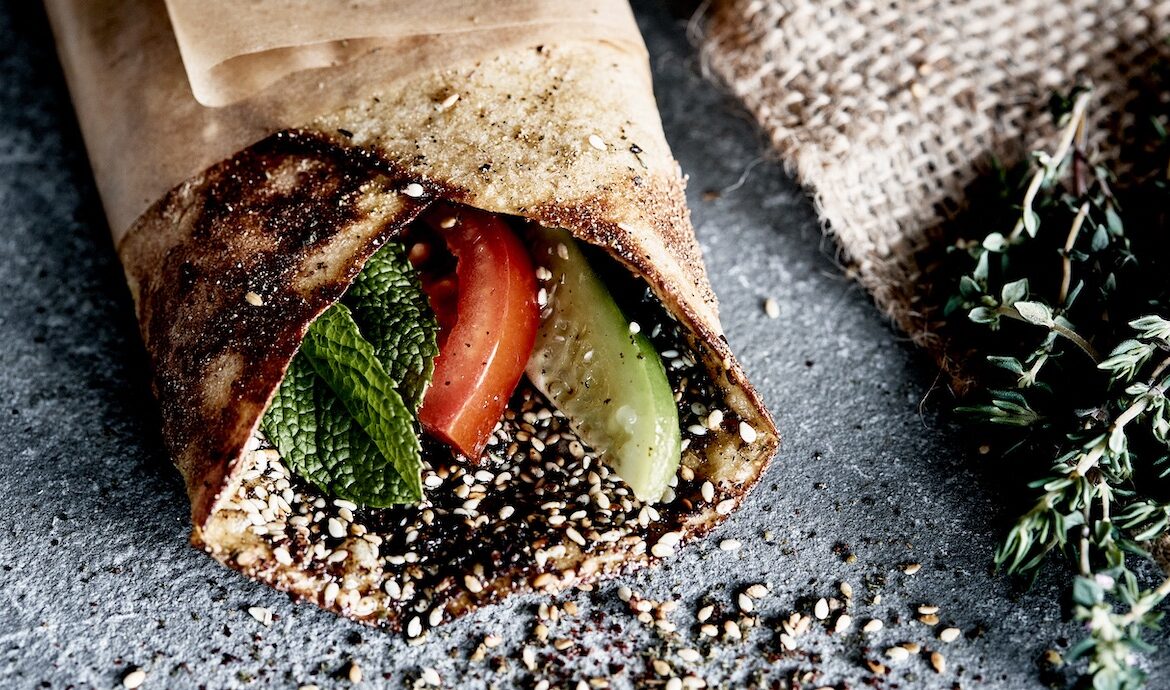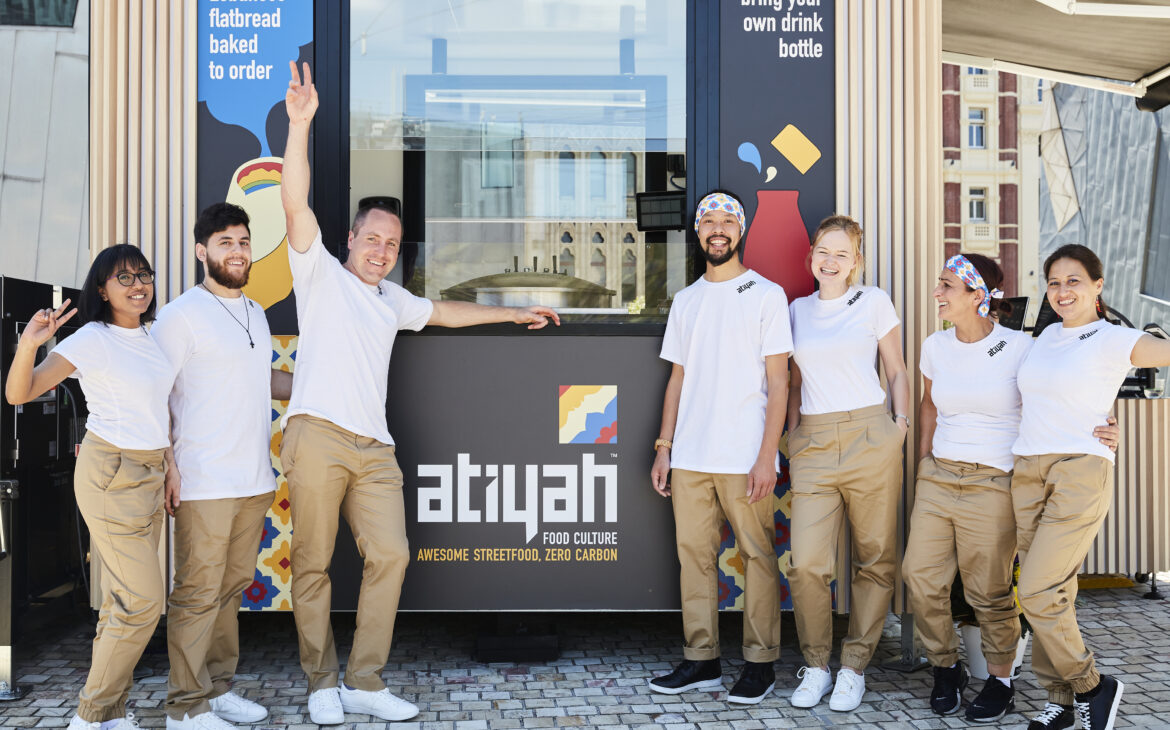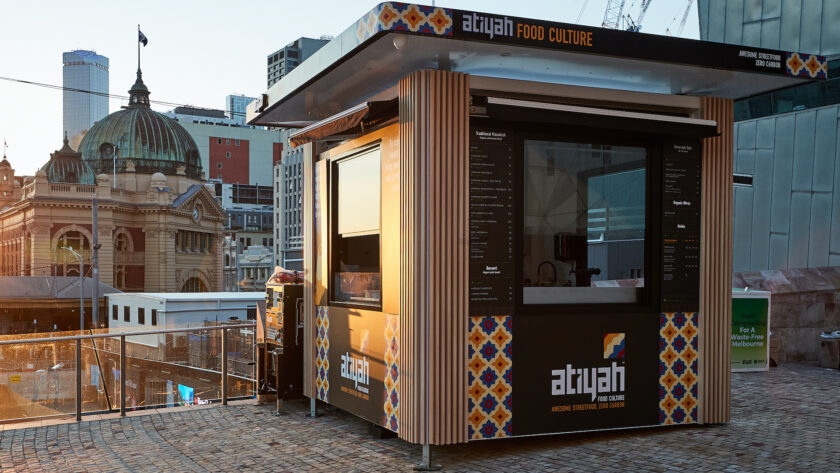Lebanese eatery Atiyah, Australia’s first zero-carbon restaurant, offers authentic cuisine cooked in an almost entirely self-sufficient kitchen – running on both solar energy and harvested rainwater.
Since launching last year, the street-food kitchen, located in Melbourne’s Federation Square, has saved 20,250kg of carbon emissions, harvested 16,890 litres of rainwater, offset 5545 kWh of renewable energy, and diverted 2,460 of waste.

So successful the venture has been, the company is now looking at expansion opportunities both within Australia and abroad. The kitchen can run anywhere in the world so long as there is rainwater.
Atiyah’s menu shows customers the carbon emissions saved with each bite and drink and surplus rainwater is filtered and sold to customers, reducing the need to sell bottled water.
The kitchen’s concept was inspired by Lebanon’s electricity and water crisis, where living off the grid and being self-sufficient is the ideal strategy. The co-founder is currently stranded in Beiruit awaiting the lifting of Covid border-travel restrictions before she can return to Australia.
Besides its zero-carbon promise, the eatery goes a step further in its sustainability efforts by helping its food and beverage suppliers replace plastic packaging with eco-friendly alternatives.
Research from The Waste Revolution shows that 91 per cent of plastic ends up in landfills or flushes into water sources. It also revealed that around 12.5kg of plastic waste is created every month from whole food and drink suppliers.

By helping suppliers make this switch, the kitchen will help eliminate an estimated 150kg of plastic waste per year.
Ben Armstrong, co-founder and MD of Atiyah, said suppliers willing to make this transition were offered partial funding and help source compostable or close-loop replacements.
“To achieve our goal in being plastic-free requires a collective effort from across the entire food and hospitality industry,” Armstrong said.
“We needed to find a solution, and that came in the way of working with our existing suppliers to help establish how we could look at eco-friendly solutions to transport food and drinks, all while maintaining health regulations and standards.
“We hope that more businesses across the sector will start having conversations with their suppliers, look at their packaging and processes to start making incremental changes for the better,” he added.

Meanwhile, the company has also launched Australia’s first zero-carbon catering service.



